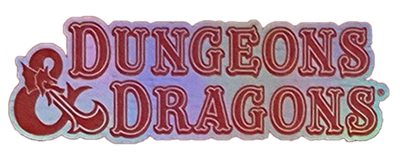Tally (Voting ends October 19, 2009 at 23:00 UTC)
| Vote | Count | Percent |
|---|---|---|
| Yea | 8 | 100% |
| Nay | 0 | 0% |
To vote, please add your vote to the total above, recalculate the percentages, and insert your username and timestamp with what you voted below. Unsigned or anonymous votes will be reverted.
Votes
Yea. --DanielDraco 23:10, October 5, 2009 (UTC)
Yea. --Andrew Arnott (talk, email) 23:28, October 5, 2009 (UTC)
Yea. Surgo 00:03, October 6, 2009 (UTC)
Yea. --Jota 00:11, October 6, 2009 (UTC)
Yea. --Ganteka Future 00:16, October 6, 2009 (UTC)
Yea. - TarkisFlux 00:25, October 6, 2009 (UTC)
Yea. --MisterSinister 05:50, October 6, 2009 (UTC)
Yea. --Sulacu 17:30, October 6, 2009 (UTC)
Proposal: Daniel Draco model
I propose that the system by which an article's level of favor (no distinction, bronze star, silver star, gold star, or featured article) is determined be defined as follows:
- Each Rating Committee member (hereafter referred to as a "Rater") gives an article a rating of "good" or "excellent" based on his/her own subjective opinion.
- A "good" article is loosely defined as being of noteworthy quality (by whatever criteria the Rater sees fit, e.g. formatting, power, and clarity), but not fitting the criteria of an "excellent" rating.
- An "excellent" article is loosely defined as being of outstanding quality (by whatever criteria the Rater sees fit), and being in the highest tier of the Rater's personal standards (which will likely vary in breadth from Rater to Rater).
- Counting a "good" rating as 1 and an "excellent" rating as 2, the overall favor of the article is determined by the sum of the ratings; 0 to 2 grants no favor, 3 to 6 grants a bronze star, 7 to 10 grants a silver star, 11 to 14 grants a gold star, and 15 or higher grants the status of being a featured article.
- Raters are strongly discouraged from allowing the ratings of others to impact their own ratings. For example, suppose an article has a total rating of 10 (silver star). A Rater who has not yet rated the article thinks the article is "good", but does not think it is worthy of a gold star. This Rater should still grant their favor of "good", and therefore increase the overall favor of the article to a gold star. This is because an individual rater should only be concerned with whether an article is worthy of "good", "excellent", or no favor at all; the possibility of bronze, silver, gold, or featured status should not factor into any Rater's rating.
- A Rater is allowed to change his/her rating at any time, e.g. after further thought or after a change to the article. For the same reason as Point 5 (above), Raters are discouraged from changing their ratings due to the ratings of others.
- If a rated article is changed, it is the responsibility of the one who made the change to inform the Ratings Committee of the change via this forum so that the ratings can be reviewed and, if deemed necessary, revised.
Reasoning
Ganteka Future's interpretation of Surgo's system appears at first to be an effective way to handle RC ratings. However, after further thought, I realized that it brings us back to one of the same issues that we had with the rating system on the paleowiki. Under the Surgo-Ganteka model, a Rater only gives his/her favor if he/she wants the article to move on to the next level; this requires him/her to judge the value of no-distinction vs. bronze vs. silver vs. gold vs. favored, and give or not give a favor based on that distinction. Essentially, he/she must decide a rating from 0 to 4, which is not much better than the 0 to 5 system of the paleowiki. My system seeks to resolve the issue of the original Surgo model (wherein a good, but not great article can become featured with seven mild favors), while avoiding the issues of the Surgo-Ganteka model. I chose the numbers for the following reasons:
- No single person can give an article a star.
- No article can be gold without at least one "excellent" rating.
- Any level can be achieved with only 8 of 10 committee members involved, which is especially important when the article in question is that of a Rater and there are therefore only 9 Raters who can rate it.
Discussion
Comments, questions, etc. go here. --DanielDraco 23:10, October 5, 2009 (UTC)
- I have my doubts that this will resolve the issues you're concerned about DD (or that the issues will actually come up for that matter), but I don't generally turn down greater control and granularity. - TarkisFlux 00:25, October 6, 2009 (UTC)
- Oh, I'll also be passing on rating anything in the list until this vote is settled. I don't really want to go back and track down all of my old ratings and convert them. - TarkisFlux 05:39, October 6, 2009 (UTC)
- This is a nicely devised system and will serve the purposes of the wiki well, as long as every rater can be sufficiently objective to the material being rated (i.e. give honest ratings that are not predicated on who made the material in question, or by the established balance point chosen). --Sulacu 17:30, October 6, 2009 (UTC)
